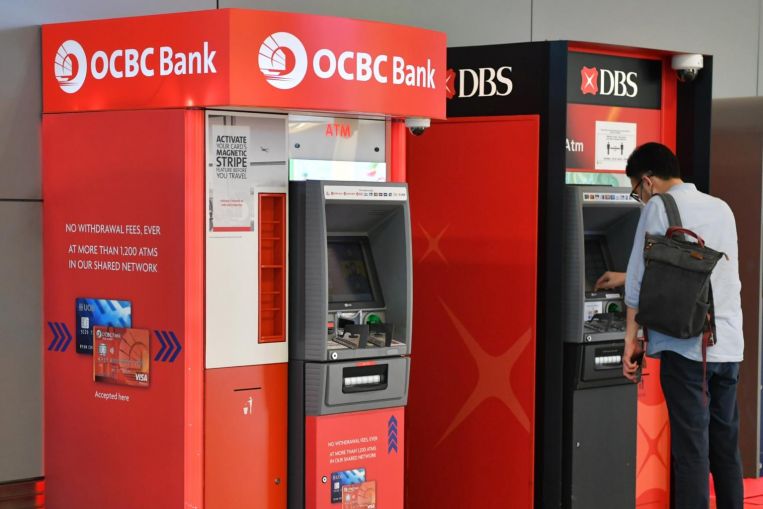SINGAPORE – New growth opportunities have emerged in China for Singapore banks, after the Hong Kong subsidiaries of DBS and OCBC banks said they received approval on Tuesday (Oct 19) to sell financial products in the mainland Greater Bay Area (GBA) under a new cross-border scheme.
Under a partnership between OCBC and China’s Ping An Bank announced on Tuesday, mainland investors will also be able to buy OCBC’s wealth and investment products in Hong Kong and Macau.
The Wealth Management Connect (WMC) scheme is expected to encourage investments among the 11 cities in the GBA and is seen as a test bed for the gradual relaxation of tight capital controls in China.
It is the first time retail investors in mainland China can conduct cross-boundary investments by purchasing wealth management products offered by providers in Hong Kong and Macau.
The new scheme will facilitate up to 300 billion yuan (S$62.5 billion) in total investment flows in both directions and generate about 3.2 billion yuan in annual wealth fees for the banks, according to OCBC’s statement.
The Hong Kong Monetary Authority (HKMA) on Monday permitted 16 banks to sell approved investment products in Hong Kong and the mainland from Tuesday.
They include OCBC, HSBC, Citigroup, Standard Chartered, Bank of China (Hong Kong) and Bank of East Asia.
Meanwhile, three Hong Kong lenders – Bank of East Asia, DBS and Dah Sing Bank – can sell products only in the GBA.
The GBA involves the cities of Hong Kong, Macau, Guangzhou, Shenzhen, Zhuhai, Foshan, Zhongshan, Dongguan, Huizhou, Jiangmen and Zhaoqing.
It is one of the wealthiest regions in the country, with more than 450,000 families holding at least six million yuan in investable assets, Mr Greg Hingston, regional head of wealth and personal banking for Asia-Pacific at HSBC, told Bloomberg.
For the Singapore banks, this is a rare opportunity to tap demand in the world’s second most populous country.
Mr Sebastian Paredes, chief executive of DBS Bank (Hong Kong), said the bank’s partnership with Postal Savings Bank of China (PSBC) announced on Tuesday will enable it to grow its GBA franchise.
PSBC has 40,000 branches and service touch points and 600 million customers nationwide.
“The southbound flows from GBA to Hong Kong will be material, and we expect flows from the WMC to be a significant part of DBS Hong Kong’s wealth management business in the future,” Mr Paredes said.
He expects that a quarter of the bank’s Hong Kong Treasures Wealth customer base will come from the GBA region over the next three years.
For a start, DBS will offer more than 110 different types of wealth products, from equity and bond funds to bonds from reputable international companies and 11 foreign currency products. More products will be introduced in the coming months.
DBS Bank (Hong Kong) is currently DBS Bank’s largest franchise outside of Singapore.
OCBC group chief executive Helen Wong said the GBA is a strategic area of growth and that the WMC scheme will be a “game changer” for the bank.
She added that the scheme and its partnership with Ping An will open up “a whole new segment of customers”.
Ping An Bank is one of the top banks in China with a wide network of more than 300 branches in the GBA and more than 107 million retail customers.
OCBC will start off by offering investors access to its unit trusts, which it can structure to cater to investors’ demands for diversification and to optimise returns.
Greater China’s contribution to the OCBC group’s overall profits was about 30 per cent last year, with the GBA accounting for more than half of those profits.
HKMA chief executive Eddie Yue said: “We will collaborate with the industry to explore enhancement measures to the scheme as and when appropriate, with a view to providing more growth opportunities for Hong Kong’s banking and wealth management industry.”
Join ST’s Telegram channel here and get the latest breaking news delivered to you.
Source: Read Full Article
